This painting depicts a nobleman dress for a game of pallone, which was a popular ball game among the Venetian aristocracy.
The game of Pallone was a forerunner of modern tennis, but rather than a racket, they used a wooden arm-guard to hit the football-sized inflated ball.
Source: Gli abiti de veneziani di quasi ogni età con diligenza raccolti e dipinti nel secolo XVIII, by Giovanni Grevembroch (1731–1807), which in four volumes contains over six hundred watercolours of how Venetians dressed in the 1700s.
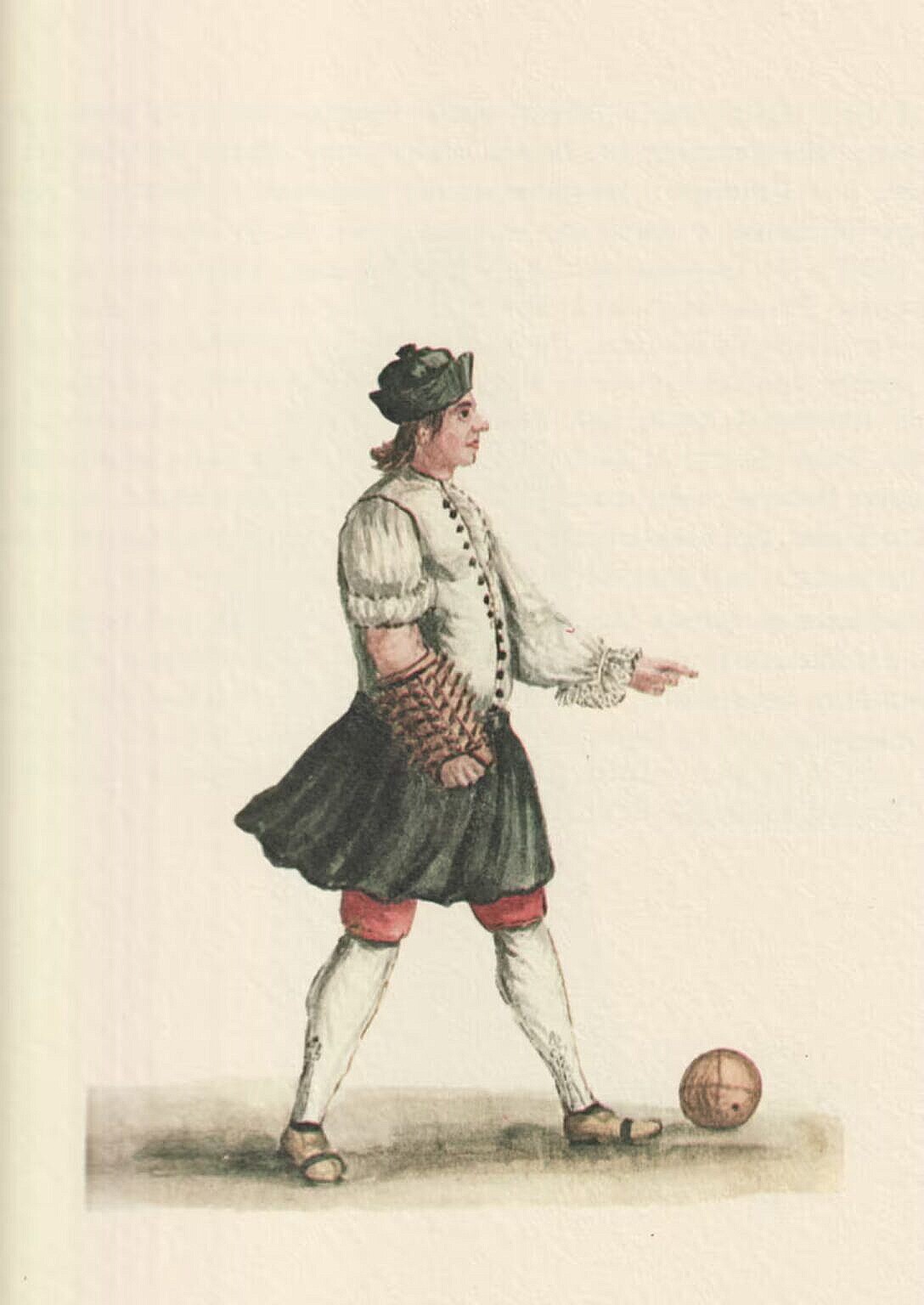
Nobleman playing at ball
Neither is the game of football lacking in this delightful Dominante,1 where no kind of amusing entertainment was never refused. The Patricians, for this purpose, in another age, used the Campo di S. Giacomo dall’Orio; but as the ground was impeded by growing grass, it was moved to the Campo de Gesuiti, where they had marked on four white stones the following monumental words: ‘Incidatur in marmore Ludus‘, which were then removed in 1711 because such a tumultuous activity disturbed the guilds2 and devotions. Thus, the Magistracy against Blasphemy3 prescribed, authorised by the High Council of Ten with a decree dated April 11, to restore it to S. Giacomo, by refurbishing the pavement. Also at S. Francesco della Vigna, at S. Giovanni di Rialto, on the Giudecca, and in Castello, matches were seen between our forefathers and foreigners, the most skilled in dexterity and timing.
Of a small world, I have the shape,
And I have the face of an animal which is dead,
I serve man for amusement and diversion,
With the wind in me, life is assured.
I am well-kept, and I have a hard head,
I receive punches and kicks, and I endure them,
While with them, I rise high,
Following my struggles comes fortune.
I am a game for the amusement of others,
And often from the thoughts of those who detain me,
I swiftly evade the boundaries.
That hand, which molests me, lifts me up
And the more I am pressed to the stone,
The more you see me raise my head.
To the famous, and unsurpassable in skill in such a delightful exercise, Mr. Carlo Guerra from Udine, let us reflect on the places where his peers used to frequent him in Venice.
Translator’s notes
- The city of Venice was often referred to as la Dominante, the dominant one, compared to the ‘subject cities’ on the mainland. ↩︎
- There were three guild houses — called scuole — in the Campo dei Gesuiti, of which three still stands. ↩︎
- The Esecutori contro la Biastemia — the Executors against Blasphemy — were charged with overseeing ‘vice’, such as drinking, prostitution, gambling and other games. ↩︎
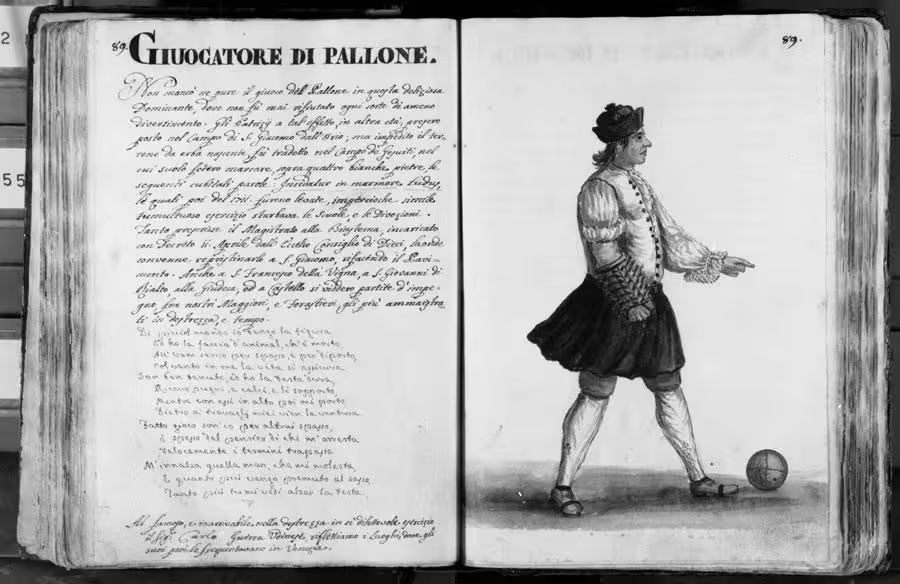
Original text
Nobile al Giuoco del Pallone
Non mancò ne pure il giuoco del Pallone in questa deliziosa Dominante, dove non fù mai rifiutato ogni sorte di ameno divertimento. Gli Patrizij a tal’effetto, in altra età, presero posto nel Campo di S. Giacomo dall’Orio; ma impedito il terreno da erba nascente, fù tradotto nel Campo de Gesuiti, nel cui suolo fecero marcare, sopra quattro bianche pietre, le seguenti cubitali parole: Incidatur in marmore Ludus, le quali poi del 1711 furono levate, impercioche simile tumultuoso esercizio sturbava le Scuole, e le Divozioni. Tanto prescrisse il Magistrato alla Biastema, incaricato con Decreto 11 Aprile dall’Eccelso Consiglio di Dieci, laonde convenne repristinarlo a S. Giacomo, rifacendo il Pavimento. Anche a S. Francesco della Vigna, a S. Giovanni di Rialto, alla Giudeca, ed a Castello si viddero partite d’impegno, fra nostri Maggiori, e Forastieri, gli più ammaestrati in destrezza, e tempo.
Di picciol mondo io tengo la figura,
Ed ho la faccia d’animal, ch’è morto,
All’uom servo per spasso, e per diporto,
Col vento in me la vita si assicura.Son ben tenuto, ed ho la testa dura,
Ricevo pugni, e calci, e li sopporto,
Mentre con essi in alto poi mi porto
Dietro a travagli miei vien la ventura.Fatto gioco son’io per altrui spasso,
E spesso dal pensier di chi m’arresta
Velocemente i termini trapasso.M’innalza quella man, che mi molesta,
E quanto più vengo premuto al sasso,
Tanto più tu mi vedi alzar la testa.
Al famoso, e inarrivabile nella destrezza in sì dilettevole esercizio il Sig.e Carlo Guerra Udinese, riflettiamo i Luoghi, dove gli suoi pari lo frequentavano in Venezia.
Grevembroch (1981), vol. 1, p. 89.
Related articles
- Gli abiti de veneziani — by Giovanni Grevembroch
- Nobile al Giuoco del Calcio — Grevembroch 1-87
- Nobile alla Rachetta — Grevembroch 1-94
- Ball games in Venice
- The game of Calcio
- The game of Pallone
- Il Gran Teatro di Venezia — plate 35 — Veduta del Campo de’ Giesuiti
- Scuole piccole
Venetian Stories
Bibliography
- Grevembroch, Giovanni. Gli abiti de veneziani di quasi ogni eta con diligenza raccolti e dipinti nel secolo XVIII, orig. c. 1754. Venezia, Filippi Editore, 1981. [more]
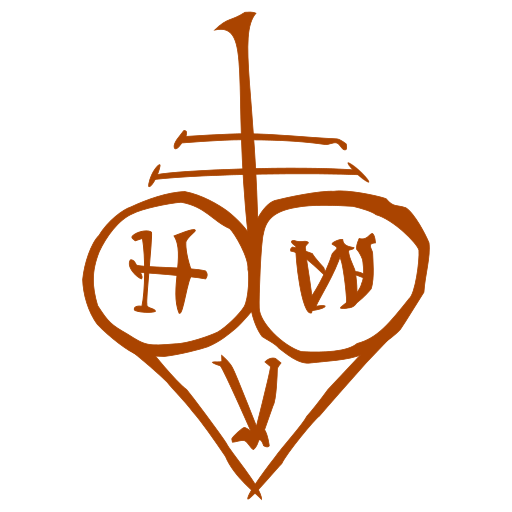

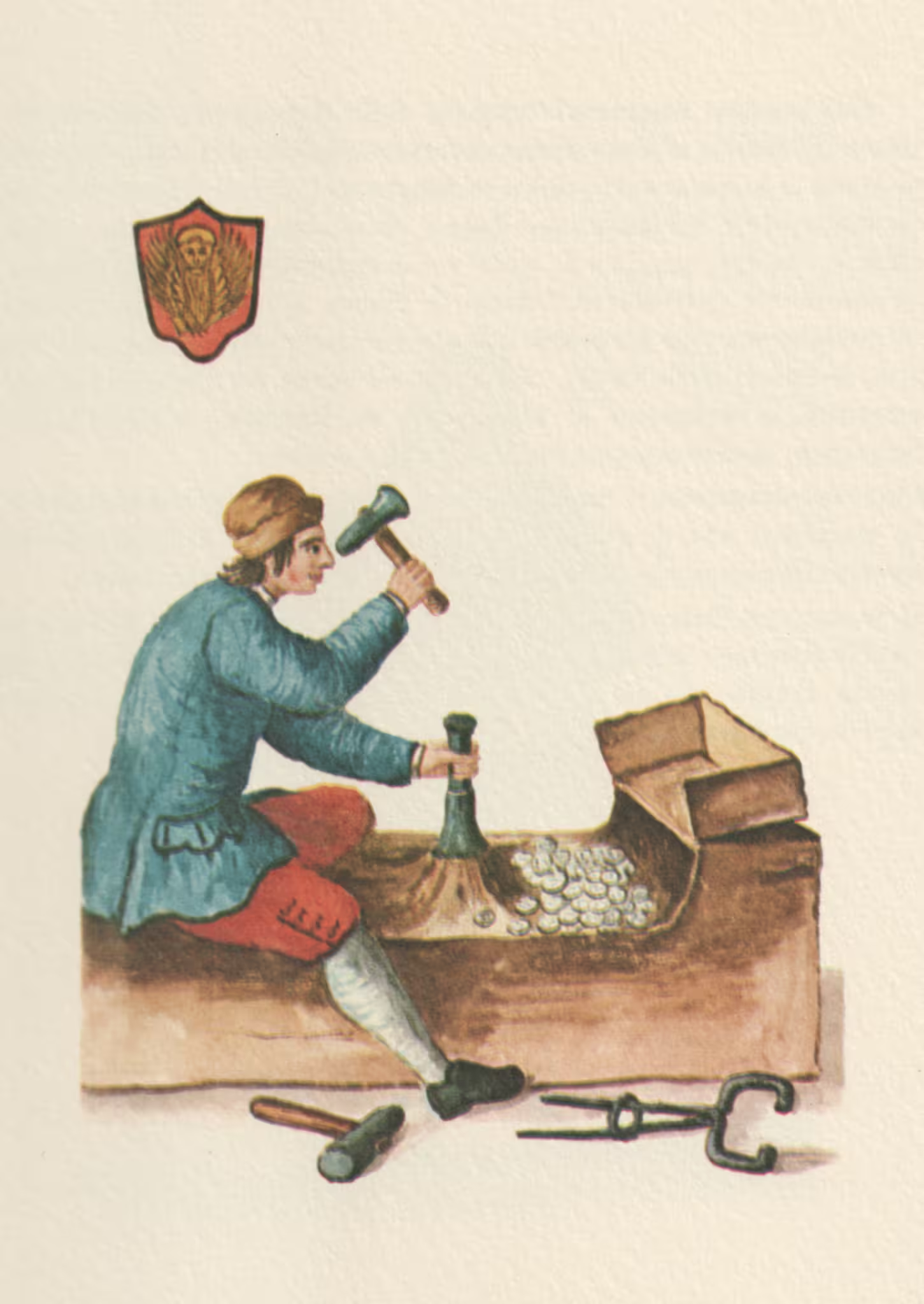
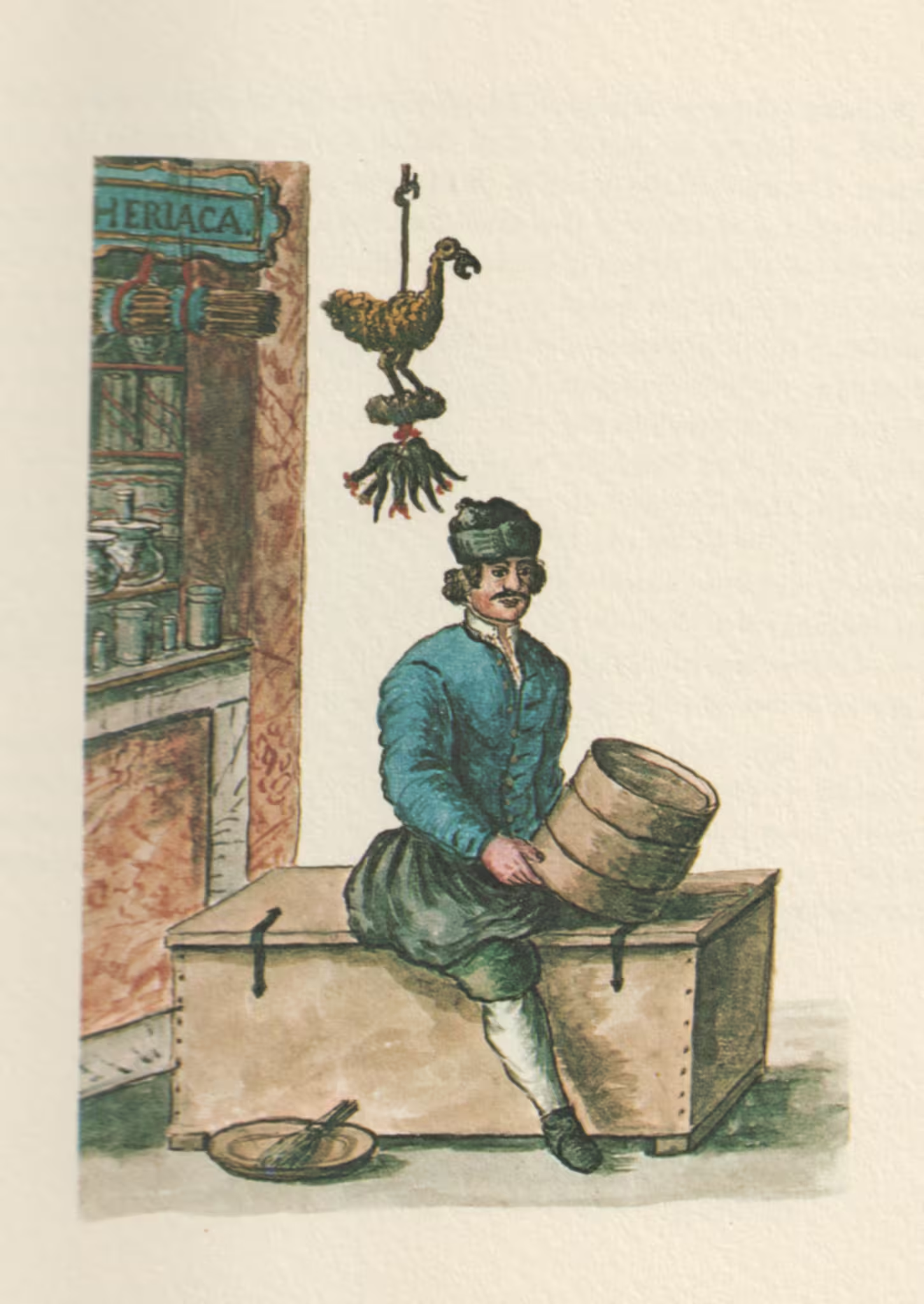
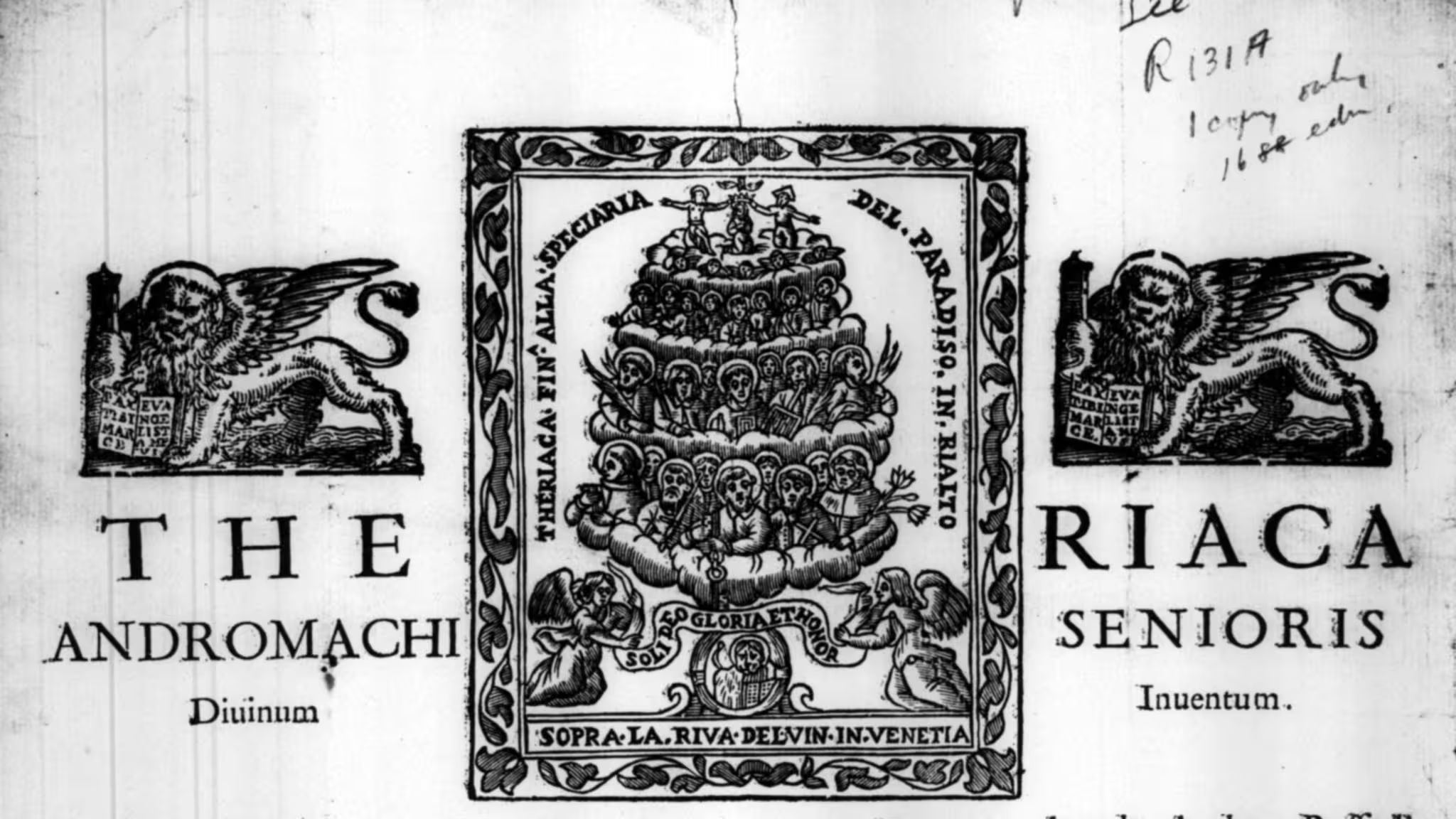
Leave a Reply to René Seindal Cancel reply